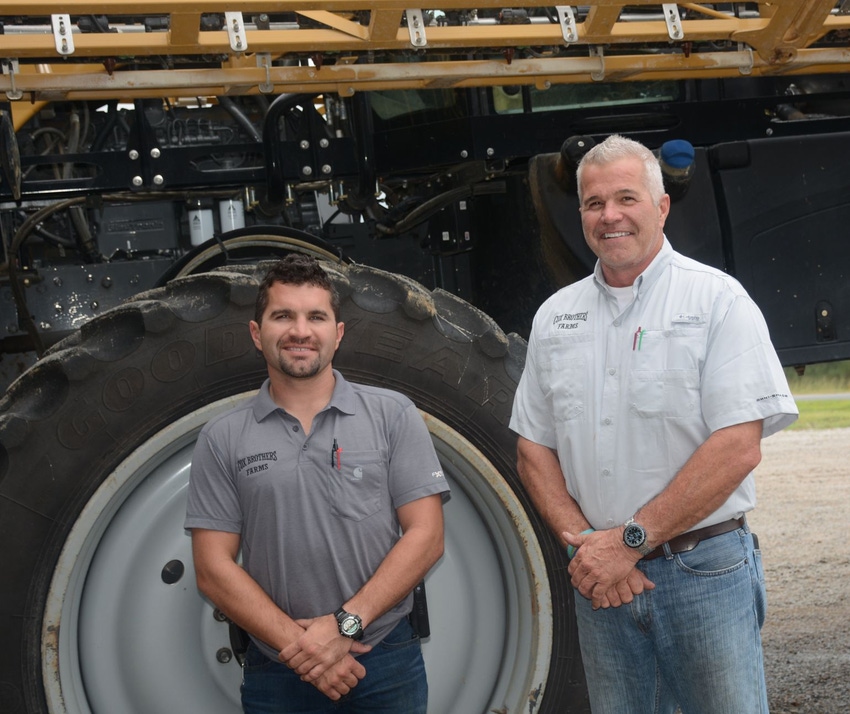
In North Carolina, Cox Brothers Farms is using BASF’s Engenia herbicide this year. In Alabama, Jimmy Griffith is using Monsanto’s Xtend Crop System.
Rusty Cox and son Campbell handle the spraying for the 15,000-acre family farm near Monroe in North Carolina’s Southern Piedmont. They are using Engenia on dicamba-tolerant soybeans. Both say proper stewardship is vital to avoid drift complaints.
“It’s imperative that everybody follows the rules,” Campbell Cox said. “You have to use the right pressure, the right boom height and the right wind speed, etc. To use this product, you have to do it right. There are no gray areas. The weather has to be right and you have to have the right equipment.”
Cox says following label guidelines is paramount. “Ignoring the label rules is ignorance; it’s not an accident. That’s not going to be acceptable to us or for any farmer.”
Rusty Cox said the news of drift complaints in the Mid-South has amplified the importance of using the dicamba technology correctly. Farmers who don’t follow the guidelines have made it tougher on everyone.
“It made us more scrutinized because now all eyes are on us on what we are going to do with this technology. The whole program is going to be tougher on everyone due to the sloppiness of a few,” he said.
Both Campbell and Rusty say the auxin technology is an important part of their weed management system. But it is only part of the system.
“Dicamba is another step in the whole process,” Campbell said. “We have to continue using PREs, and we have to keep using all of the chemistries and modes of action that we have. Engenia is another tool in the tool bag; it’s not the only tool in the tool bag.”
“A lot of the larger farmers ask us why don’t we get our employees to spray. We tell them that we can better manage our crops when we’re on a sprayer. If you’re on a sprayer going down the field, you feel confident that you’re getting the best management done,” Rusty says.” You can’t see it from a pick-up truck riding down the road and see what you need to do in that field. If you circle it with a sprayer, you will know immediately what you need and when you need it.”
In Alabama
About 350 miles southwest of the Cox farm, Jimmy Griffith is successfully using Monsanto’s Xtend Crop System on his soybeans and cotton this year.
The Centre, Ala., farmer notes that other farmers in Cherokee County in central Alabama are also using the new technology. As of early July, no official dicamba complaints had been filed with the Alabama Department of Agriculture.
“Everybody in this area is doing it right. They’re going by the label and it’s worked very well for us. People need to be real careful with this technology. We don’t want to lose it,” Griffith says.
Griffith is using Xtend on 1,100 acres of his cotton and 400 acres of soybeans. He’s using Xtendimax as a residual or layby and he said it is working “fantastic.” He plans to stick with the technology.
“We like to try new things. It’s a little different chemistry. We used dicamba for years as a burndown, but it got to where it wouldn’t kill the marestail. But now our fields are clean. It’s working well for us,” he said.
About the Author(s)
You May Also Like






